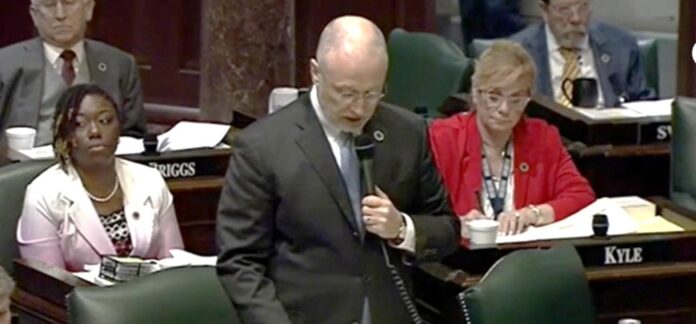


Last week, Tennessee’s legislative body passed SB 0429/HB 0474 – Amendment 1, effectively prohibiting the study and disbursement of reparations, igniting a firestorm of debate and statewide opposition. The bill, sponsored by Sen. Brent Taylor, a Shelby County Republican, stirred contention as it navigated through the corridors of power.
Sen. Taylor defended the decision, citing the federal government’s jurisdiction over reparations.
“It is a very important issue for many people in our country, but it is an issue that belongs to the federal government and does not belong to our cities and counties,” Sen. Taylor asserted. “And, I think it’s inappropriate for our cities’ and counties’ tax dollars to go to such an issue.”
However, opposition voices–such as Yusuf Hakeem, the state representative for District 28; the Rev. Earle Fisher of Abyssinian Baptist Church in Memphis; and members of The Equity Alliance Fund, based in Nashville–vehemently disagreed. They argue that the historical debt owed to the descendants of enslaved Americans transcends mere monetary compensation.
“The United States pays reparations every day–just not to Black America,” Rep. Hakeem said. “Farmers. Fishermen. People who’ve lost bank accounts or pensions. People who’ve had a bad reaction to a COVID vaccine. People who’ve had a reaction to any other vaccine. Indigenous people. Veterans. Descendants of veterans. People who get hurt on the job. People who built nuclear bombs. People exposed to pesticides. Coal miners who get black lung disease. People who lose paychecks or homes from floods, droughts, or other natural disasters. People who are impacted by trade agreements.”
Officials representing the Equity Alliance Fund said in a statement: “But the truth is that Black labor has been foundational to the growth of America and our economy from the jump! The descendants of enslaved Americans are owed reparations, with interest, for the centuries of forced labor our ancestors endured without compensation.”
Rev. Fisher echoed this sentiment, emphasizing that the issue is not solely about money, but about rectifying systemic injustices and confronting entrenched power structures.
“This is not about money,” he said. “This is about ideology. This is about political power. This is about people who are hell-bent on maintaining racial and economic inequities across the state and they are scared to death that the truth would come out. So, they don’t want anybody to study it.”
He added, “If the state of Tennessee has hundreds of millions, if not billions, of dollars in a surplus, surplus means we are taking care of all of our financial responsibilities, and this is how much money we have left over. We can even call it expendable income. There are other entities and organizations that get 25 times that to do something most of us will probably say is a lot less significant.”
In response to Sen. Taylor’s bill, Rev. Fisher earlier this month launched a petition titled “Stop Tennessee from Banning the Study of Reparations.”
The petition, which garnered more than 2,500 signatures, reads in part: “As community members, faith leaders, elected officials, organizers, and people of good will, we are deeply troubled and utterly dismayed by the reprehensible legislation proposed by the Tennessee legislature to prohibit local governments from engaging in the vital work of studying or disbursing reparations. The timing of this proposal on April 4th, the tragic anniversary of Dr. Martin Luther King Jr.’s assassination, adds insult to injury and shows a blatant disregard for the profound impact of economic injustice on Black communities. We recommend HB0474 be withdrawn immediately.”
